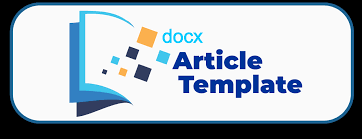Mosque-Based Community Empowerment in Improving the Economy of the Muhammadiyah Taqwa Mosque Dolok Masihul, Serdang Bedagai Regency
DOI:
https://doi.org/10.37680/amalee.v6i1.6237Keywords:
Community Empowerment, Congregational Economy , Mosque, Participation, WelfareAbstract
In the context of community development, mosques can be used as a means to improve the welfare of worshippers through various forms of empowerment. This study aims to analyze the economic empowerment strategy of the congregation implemented by the Muhammadiyah Taqwa Mosque located in Dolok Masihul District, Serdang Bedagai Regency. The method used was qualitative descriptive, with data collection carried out through observation, in-depth interviews, and documentation studies. The findings of the study indicate that mosques play a role not only as a place of worship, but also as a center for economic empowerment of the ummah through various programs such as sharia-based cooperatives, skills training, and management of ummah funds. This empowerment has a positive impact on improving the economic welfare of pilgrims, building independence, and strengthening social solidarity. The active role of mosque administrators, collaboration with community leaders, and congregational participation are key factors for the success of the implementation of these programs.
References
Ap. Moreira, G., & Wanda Rutkoskwi, E. (2021). Zero Waste Strategy for a Green Campus. Journal of Sustainability Perspectives, 1, 367–373. https://doi.org/10.14710/jsp.2021.12027
Connolly, M., James, C., & Fertig, M. (2019). The difference between educational management and educational leadership and the importance of educational responsibility. Educational Management Administration & Leadership, 47(4), 504–519.
Creswell, J. W., & Poth, C. N. (2007). Choosing Among Five Approaches Choosing Among Five Approaches (Issue June).
Desrianita, D. (2018). Communication Climate on Palu Trashbag Communities. SOCIAL HUMANITY, 2(1), 56–80.
Hamdi, S., Nurjannah, S., Nasrullah, A., & Zuarnum, L. S. (2022). Madhhab Negotiation, Education Transformation and Conflict Resolution in Conveying the Sermon of Tablighi Jamaat in Southeast Asia. Religious: Jurnal Studi Agama-Agama Dan Lintas Budaya, 6(1), 95–110. https://doi.org/10.15575/rjsalb.v6i1.13802
Haniah, A. R., Aman, A., & Setiawan, R. (2020). Integration of strengthening of character education and higher order thinking skills in history learning. Journal of Education and Learning (EduLearn), 14(2), 183–190. https://doi.org/10.11591/edulearn.v14i2.15010
Hidayat, N., & Jafar, W. A. (2021). Ijtihad From Friends Of The Prophet Muhammad In Making Justice Law. International Journal of Educational Research and Social Sciences (IJERSC), 2(1), 111–117.
Ilhan, A., & Gülersoy, A. E. (2019). Discovery Learning Strategy in Geographical Education: A Sample of Lesson Design. Review of International Geographical Education Online, 9(3), 523–541. https://doi.org/10.33403/rigeo.672975
Irawan, B., Rofiah, C., Asfahani, A., Sufyati, H. S., & Hasan, W. (2023). Empowering Micro Small and Medium Enterprises (MSMEs) to Improve Global Economic Welfare. International Assulta of Research and Engagement (IARE), 1(2), 75–86.
Kohne, A. (2019). Business development: Customer-oriented business development for successful companies. In Business Development: Customer-Oriented Business Development for Successful Companies. Springer Fachmedien Wiesbaden. https://doi.org/10.1007/978-3-658-24726-3
Kuwawenaruwa, A., Wyss, K., Wiedenmayer, K., Metta, E., & Tediosi, F. (2020). The effects of medicines availability and stock-outs on household’s utilization of healthcare services in Dodoma region, Tanzania. Health Policy and Planning, 35(3), 323–333. https://doi.org/10.1093/heapol/czz173
Malik, A. (2017). Stigmatization of Islamic School: Pesantrens, Radicalism and Terrorism in Bima. Ulumuna, 21(1), 173.
Meilan, L., & Mariani, E. (2023). Confidence and Students’ Access of Part-Time Labor in Kalimantan Tengah. Socio-Economic and Humanistic Aspects for Township and Industry, 1(2), 152–159.
Muliati, T., A., N., & Piliana, W. O. (2018). Social Economic Condition Of Fishermen Community In Tanjung Tiram Village, North Moramo District, South Konawe Regency. Jurnal Sosial Ekonomi FPIK UHO, 3(3), 216–228.
Nasution, M. A., Siregar, Z. M. E., & ... (2021). Strengthening Bumdes through Customer Satisfaction and Loyalty as the Defense of the Bumdes Business in Indonesia Post-Covid-19. Budapest International Research and Critics Institute (BIRCI-Journal): Humanities and Social Sciences, 4(3), 3962–3970.
Pujiono, I. P., Rachmawanto, E. H., & Nugroho, D. A. (2023). The Implementation of Improved Advanced Encryption Standard and Least Significant Bit for Securing Messages in Images. Journal of Applied Intelligent System, 8(1), 69–80.
Purwanti, A., Amalia, M. M., Asrijal, A., Maq, M. M., Faliza, N., & Roefaida, E. (2023). Community empowerment through utilization of Moringa plants as a business startup. Amalee: Indonesian Journal of Community Research and Engagement, 4(2), 491–503.
Reggina, F., & Indriani, E. (2023). Psychological Education in Overcoming Trauma Due to Natural Disasters. Socio-Economic and Humanistic Aspects for Township and Industry, 1(2), 160–165.
Rijal, S. (2020). Performing Arab saints and marketing the prophet: Habaib and Islamic markets in Contemporary Indonesia. Archipel. Études Interdisciplinaires Sur Le Monde Insulindien, 99, 189–213.
Rosari, R., Nugrahanti, T. P., Noor, L. S., Muslimin, M., & Zaroni, A. N. (2024). The Effect of Intellectual Capital on MSME Performance Through Innovation as an Intervening Variable. International Journal of Social Science and Business, 8(1), 161–168.
Salik, M. (2019). Conserving moderate Islam in Indonesia: An analysis of Muwafiq’s speech on online media. Journal of Indonesian Islam, 13(2), 373–394. https://doi.org/10.15642/JIIS.2019.13.2.373-394
Stephenson, L. (2023). Collective creativity and wellbeing dispositions: Children’s perceptions of learning through drama. Thinking Skills and Creativity, 47(November 2022), 101188. https://doi.org/10.1016/j.tsc.2022.101188
Tatara, B. A., Suhirwan, S., & Afifuddin, M. (2022). The active defense strategy of the National Narcotics Board of the Republic of Indonesia in facing asymmetric warfare. International Journal of Advances in Social and Economics, 4(3), 84–89.
Tyagi, R. (2023). Empowering the unbanked: a revolution in financial inclusion through artificial intelligence. International Journal of Research in Engineering, Science and Management, 6(10), 4–12.
Villafuerte, J., & Mosquera, Y. M. (2020). Teaching English language in Ecuador: A review from the inclusive educational approach. Journal of Arts and Humanities, 9(2), 75–90.
Downloads
Published
How to Cite
Issue
Section
License
Copyright (c) 2025 Burju Amar Ma'ruf Hasibuan, Muniruddin Muniruddin

This work is licensed under a Creative Commons Attribution-ShareAlike 4.0 International License.
Authors who submit manuscript retain its copyright and grant Amalee right of first publication licensed under a Creative Commons Attribution-ShareAlike 4.0 International License (CC BY-SA 4.0) that allows others to access (search, read, download, and cite), share (copy and redistribute the material in any medium or format) and adapt (remix, transform, and build upon any material) the work for any lawful purpose, even commercially with an acknowledgement of the work's authorship and initial publication in Amalee: Indonesian Journal of Community Research and Engagement.














